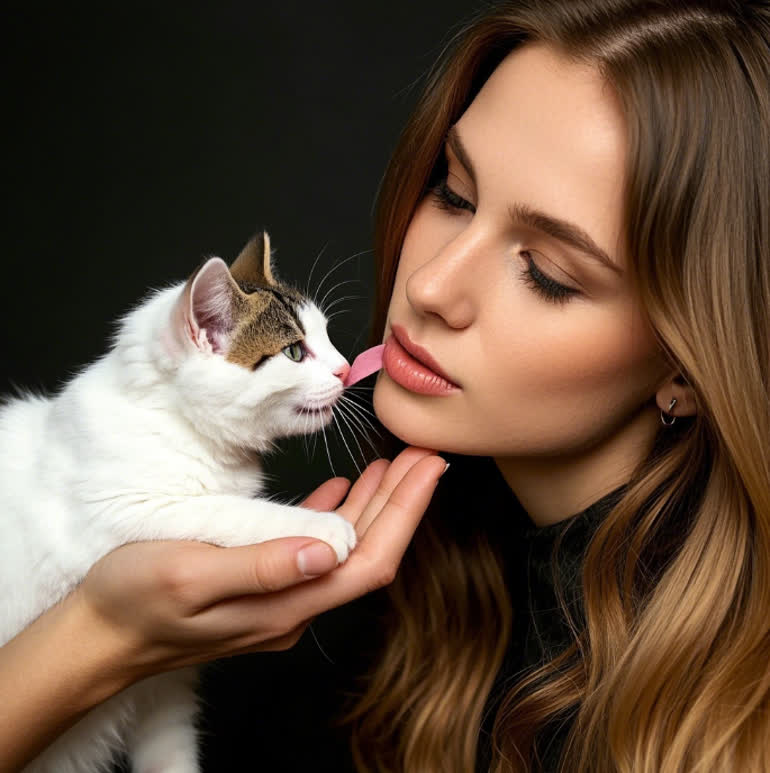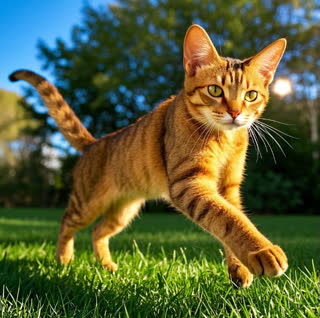Do cats say sorry after misbehaving? While our feline friends can’t speak human language, they do communicate their remorse through subtle yet unmistakable cat apology signs. From gentle head-butts to sudden bursts of affection, cats have a unique way of mending fences after causing trouble. In this article, we’ll explore the science behind feline behavior and uncover the 12 most common signs your cat is saying “I’m sorry.”
Understanding Feline Emotions: Do Cats Feel Remorse?
Before diving into specific apology signs, it’s important to address a key question: Do cats actually feel guilt or remorse? While cats don’t experience emotions in the same way humans do, they are highly attuned to their environment and can sense when they’ve upset their human companions. Research suggests that cats may associate their actions with negative outcomes (like a scolded tone or a slammed door) and adjust their behavior accordingly. This isn’t guilt in the human sense, but rather a learned response to avoid conflict.
For example, a cat might slink away after knocking over a vase not because they feel guilty, but because they’ve learned that breaking things leads to your frustration. However, their subsequent attempts to “make amends” through affectionate gestures show they care about maintaining a harmonious relationship.
12 Cat Apology Signs to Look For
Now, let’s decode the most common ways cats signal their remorse:
1. Licking Your Hand or Face
A cat’s tongue might feel scratchy, but a gentle lick is often a sign of affection and apology. Cats groom themselves and others to bond, so licking you could mean, “I’m sorry—let’s stay close.” It’s especially meaningful if your cat usually avoids physical contact.
2. Sudden Snuggles or Cuddling
Cats are notoriously independent, so when they 主动 jump into your lap or curl up beside you after misbehaving, it’s a clear olive branch. They’re seeking reassurance and showing they want to reconnect.
3. Head-Butting and Rubbing
Head-butting, or “bunting,” is a cat’s way of marking you with scent glands to claim you as part of their tribe. After acting out, this gesture might be their way of saying, “You’re still my favorite human—let’s move past this.”
4. Soft, High-Pitched Meows
A cat’s meow can vary widely in tone and purpose. A quiet, chirpy meow after a mishap might be their attempt to initiate a truce. They’re essentially asking, “Are we okay?”
5. Bringing “Gifts”
Finding a dead mouse or toy at your feet might not feel like an apology, but cats view it as sharing their spoils. This gesture says, “I care about you and want to provide for you.”
6. Rubbing Against Your Legs
Similar to head-butting, rubbing against your legs is a way to bond and apologize. Your cat is using scent to reinforce your connection and ease tension.
7. Slow Blinking
A slow, deliberate blink is often called a “cat kiss.” It’s a sign of trust and relaxation. If your cat gives you this look after misbehaving, they’re signaling they feel safe with you despite the incident.
8. Purring
Purring is usually associated with contentment, but cats also purr when stressed or seeking comfort. After a mistake, a soft purr might be their way of calming both you and themselves.
9. Kneading
Kneading (or “making biscuits”) is a kittenhood habit that persists into adulthood. When done gently on your lap, it’s a sign of comfort and apology. Your cat is showing they feel secure with you.
10. Playfulness
A sudden urge to play after misbehaving could be your cat’s way of lightening the mood. They’re inviting you to engage and forget the conflict.
11. Avoidance or Hiding
Not all apology signs are affectionate. Some cats might 躲起来 if they sense your irritation. This isn’t defiance—it’s their way of giving you space until things calm down.
12. Changes in Body Language
A lowered tail, flattened ears, or a hunched posture can indicate your cat is anxious about your reaction. They’re showing submission to avoid further conflict.
How to Respond to Your Cat’s Apology
When your cat displays these signs, it’s important to reinforce positive behavior. Here’s how:
Stay calm: Avoid scolding, as it can stress your cat and damage trust.
Offer affection: Pet them gently or give a treat to reward their efforts.
Redirect behavior: If the misbehavior was due to boredom, provide toys or playtime to prevent future issues.
Final Thoughts: Strengthening Your Bond
Cats may not apologize in the way humans do, but their actions show they care about your relationship. By recognizing these cat apology signs, you can deepen your connection and create a happier home for both of you.










